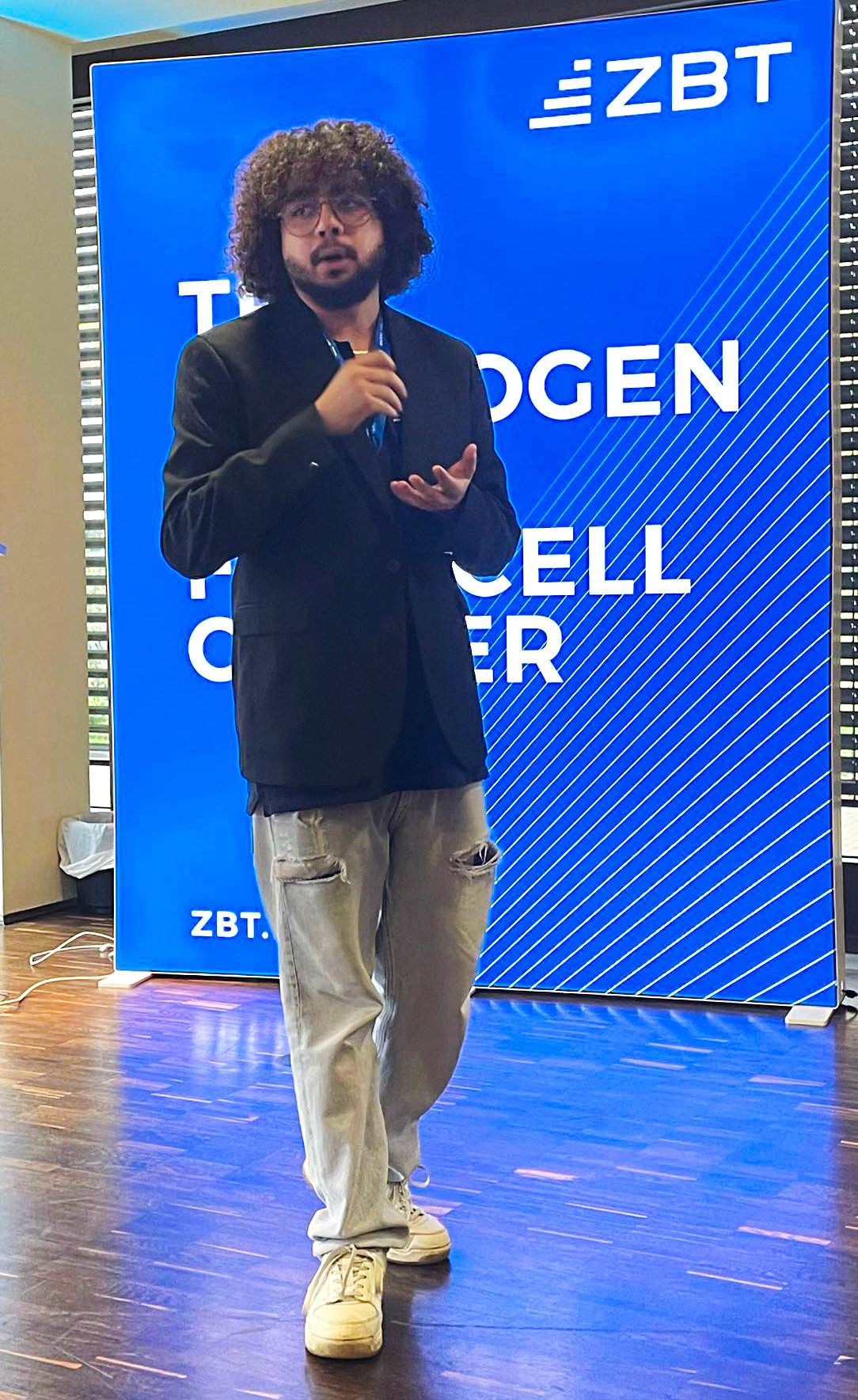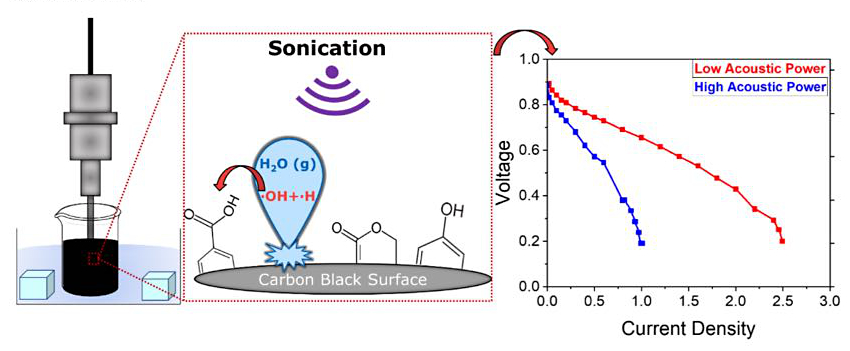
Open-access Paper: Water Sonolysis During Ultrasonic Dispersion Affects Catalysts
Catalysts for PEM fuel cells can be negatively affected by water sonolysis during ultrasonic dispersion. Tailor-made dispersion protocols are therefore crucial for the subsequent performance of the fuel cell.
Catalysts in fuel cells are fragile structures, and harmful influences should be avoided as far as possible during their manufacture in order to maintain optimum performance. For example, water sonolysis during ultrasonic dispersion can lead to oxidation of the carbon carrier, as radical species such as hydroxyl (OH) are formed in the process. This impairs the performance of the PEM fuel cell.
Adib Caidi (pictured), a doctoral student at ZBT, took a close look at the sonochemical processes during dispersion. Through the targeted use of ultrasound, he was able to modify the structure and chemistry of carbon carriers and then examine them.

